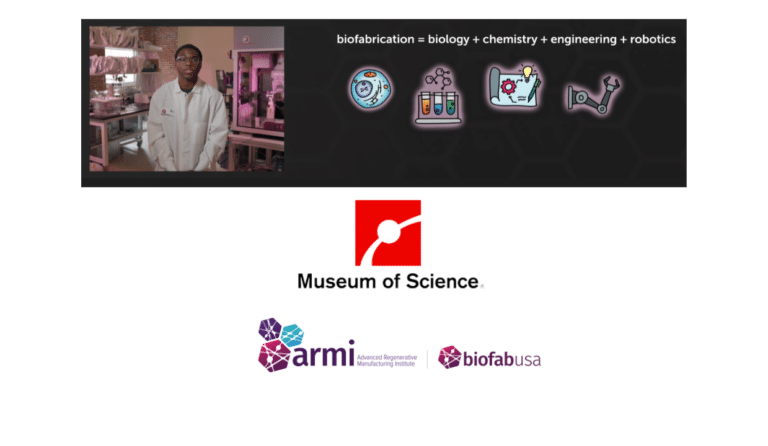Scientists have taken a major step closer to being able to 3D bioprint functional organs by devising a method of rebuilding components of the human heart. FluidForm, a new ARMI member, is making this technology available for research and commercial applications, with the ultimate goal to revolutionize regenerative medicine and impact millions of Americans every year.

The new technology, called Freeform Reversible Embedding of Suspended Hydogels (FRESH), was developed at Carnegie Mellon University (CMU), also an ARMI member, and recently granted US patent 10,150,258. Now licensed to FluidForm, this Massachusetts startup is focused on dramatically expanding the capabilities of 3D printing biological and synthetic materials. In their most recent work, the team of researchers from CMU, many of which are involved with FluidForm, developed an advanced version of FRESH technology to 3D print collagen with unprecedented complexity and construct components of the human heart spanning from small blood vessels to valves to beating ventricles.
“The challenge with 3D bioprinting has been the use of soft and deformable materials that collapse or flow when printed in air. With FRESH, we’re able to make nearly any material printable, which has allowed us to create high fidelity 3D extracellular matrix scaffolds and cellularized constructs, significantly advancing the field” said Professor Adam Feinberg, who led the team at CMU and is also CTO at FluidForm.
As reported in the August 3 issue of Science, FRESH works by extruding liquid collagen or other materials into a special support bath, where the material then gels into a filament, using various mechanisms depending on the hydrogel being 3D printed. Importantly, FRESH enables 3D printing of biologic materials including alginate, collagen, and fibrin with resolution and fidelity that matches or even exceeds that achieved with plastics such as PLA and ABS.

FluidForm is now commercializing FRESH for the research market through its LifeSupport™ gel for bioprinting, and working directly with strategic partners for more advanced commercial and translational applications.
Printing tissues and organs like a heart could have huge benefits for hundreds of thousands of patients each year. In order to achieve that goal, 3D bioprinting technology needs to be able to assemble not just cells, but also the extracellular matrix (ECM) that acts as a scaffold to support and guide cellular development.
“We’ve learned from the last decade of developmental biology research that ECM plays a critical role in guiding cells to assemble and function properly. That’s why we’ve focused on building a technology that can print ECM with high fidelity and resolution. We now have the ability to build constructs that recapitulate key structural, mechanical, and biological properties of native tissues,” said Feinberg. He added, “There are still many challenges to overcome to get us to bioengineered 3D organs, but this research represents a major step forward.”
The benefits from this technology would not come solely in the form of transplants. Feinberg explained that pharmaceutical companies are also in need of better in-vitro testing models, as certain side-effects like arrhythmia can’t be reproduced in current 2D cell culture models. In the future, 3D printed tissue could also be used create contractile patches to repair damaged parts of a heart.
FluidForm, which manufactures its LifeSupport support gel in the US, is committed to expanding access to FRESH printing and helping researchers translate discovery into products for patients. “Our focus is on improving bioprinting everywhere. With FRESH, you can print scaffolds and cellularized constructs that are impossible to print any other way. We’re excited to be working with academia and industry to dramatically expand what’s possible in bioprinting,” said Mike Graffeo, CEO of FluidForm.
FluidForm is offering initial purchases of its LifeSupport gel at a discount for ARMI members. More information can be found in the ARMI member portal.






